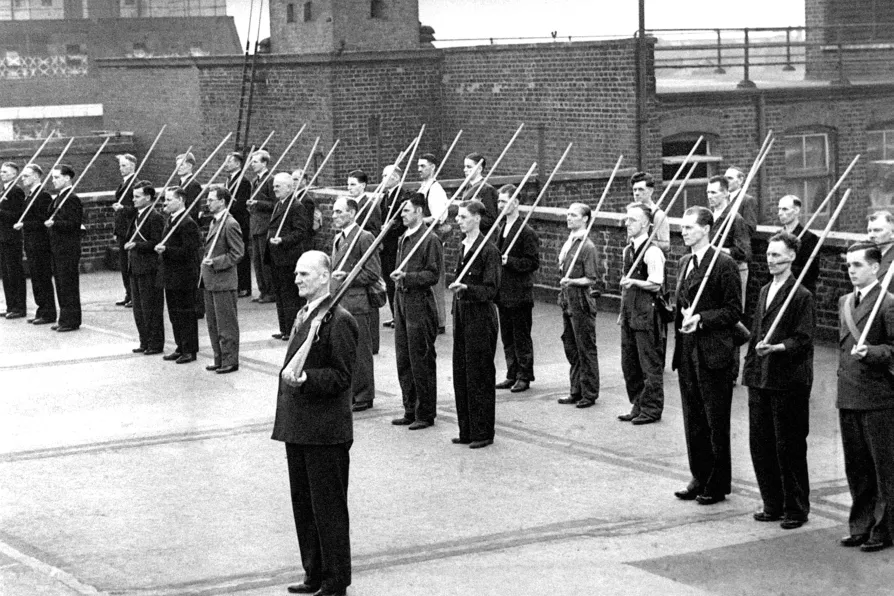The US assault on Venezuela is brazen and unlawful – yet our PM claims uncertainty. By refusing to confront Trump’s naked imperialism, Starmer abandons international law, mortgages British policy to Washington, and clears the ground for war, argues ANDREW MURRAY

 A PEOPLE’S ARMY: A broomstick parade on a London roof by a City firm’s staff eager to support the Home Guard, May 1940
A PEOPLE’S ARMY: A broomstick parade on a London roof by a City firm’s staff eager to support the Home Guard, May 1940
WHEN he was in his nineties, former Labour leader Michael Foot was asked by the BBC how he would have reacted if Lord Halifax, the foreign secretary, had made peace with Hitler in 1940. “I’d have killed him,” said Footy. And he wasn’t speaking metaphorically.
In the run-up to the second world war, a number of unorthodox leftwingers had come to the conclusion that Britain could only win against Germany if it underwent a socialist revolution. This would inevitably involve a degree of civil war and the formation of workers’ militias.
As it turned out, of course, they were wrong. Britain remained capitalist — although forced, for the sake of efficiency and productivity, to temporarily adopt some socialistic measures — and yet successfully resisted invasion. But at the time, their views made a lot of sense to a lot of people.

MAT COWARD tells the story of the eccentric founder of a short-lived but striking experiment in ‘vital democracy,’ who became best known for giving away his estate to the nation













